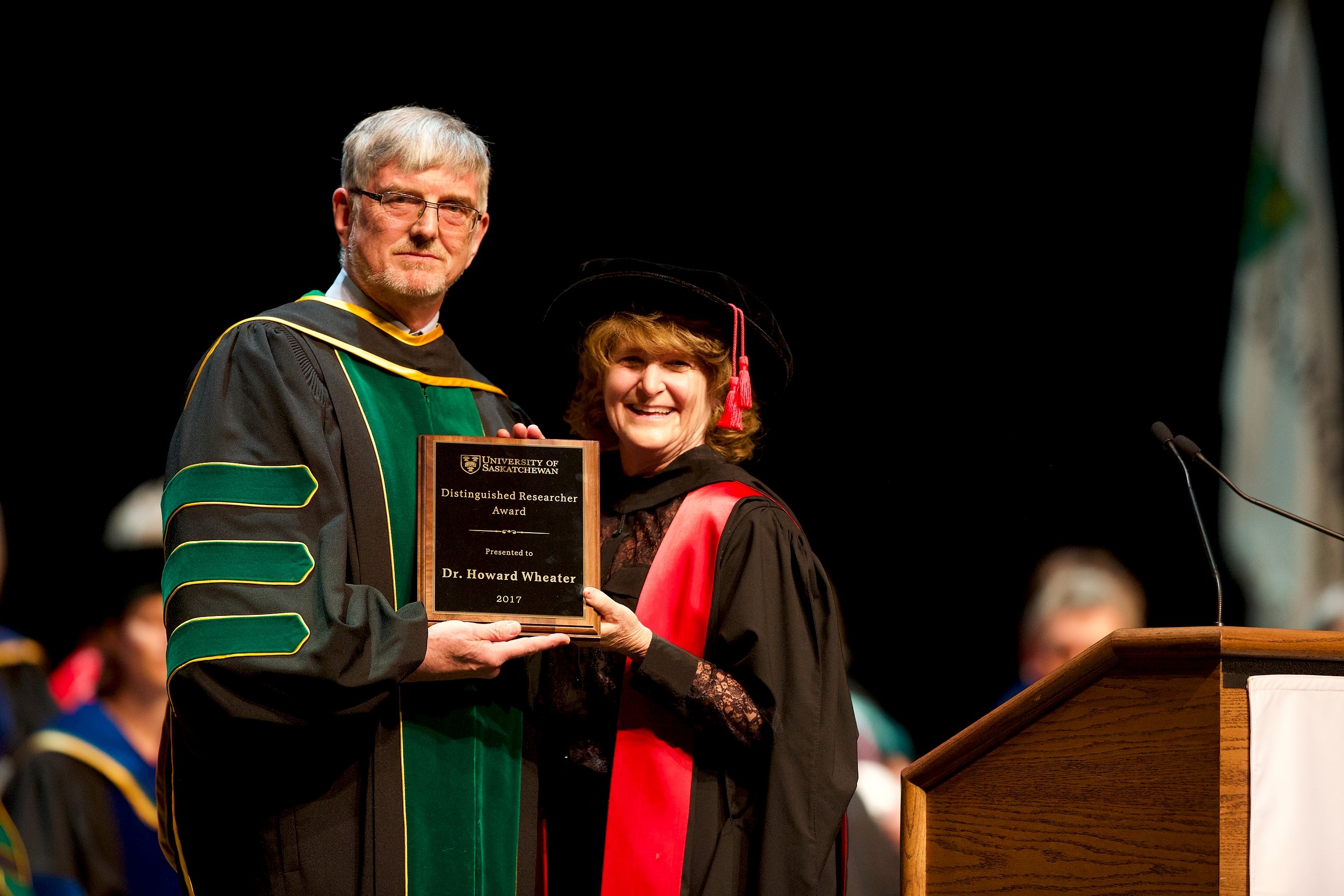
Wheater receives U of S Distinguished Researcher Award
Howard Wheater has been awarded the University of Saskatchewan’s highest honour for research, the Distinguished Researcher Award, during a convocation ceremony June 8.
SASKATOON – Howard Wheater has been awarded the University of Saskatchewan’s highest honour for research, the Distinguished Researcher Award, during a convocation ceremony June 8.
Wheater, Canada Excellence Research Chair in Water Security and director of the Global Institute for Water Security, was recruited to the U of S and arrived in 2010 from Imperial College London where he was a faculty member for more than 30 years. Since then he has led the highly successful GIWS research program and overseen the creation of the Changing Cold Regions Network (CCRN) and the recently announced $143.7-million Global Water Futures (GWF) program.
“The value of Howard’s research cannot be overstated,” said Karen Chad, U of S vice-president of research. “He is a man of vision. A leader of leaders. A role model of integrity. An individual of great passion. An ambassador of good will, humility, and compassion. He is a wizened owl of knowledge. And a gentle soul of kindness of warmth. Congratulations Dr. Howard Wheater.”
Wheater was born and raised in Nottingham, U.K. and graduated from Cambridge University with a first-class engineering degree in fluid mechanics. He spent the early days of his career working on jet engines for Rolls Royce before changing his focus to water. He completed a PhD and postdoctoral studies at Bristol University before moving to Imperial where he successfully led national and international research.
He has published over 200 peer-reviewed articles, written 5 books, and authored 28 book chapters on everything from acid rain, arid zone hydrology, nutrients in ground water systems, and effects of agricultural intensification on flooding, to name a few.
It was not until Wheater arrived in Canada that he began working on cold climate hydrology, a challenge he was excited to meet.
“There was quite a learning curve for me to work in cold climates – it’s been very interesting,” said Wheater. “It’s fascinating to understand the really special nature of the water cycle in cold climates. Mostly we hydrologists just worry about water, but here, you have to worry about water and energy because so much hydrology is bound up in snow, ice and frozen soils and there many subtleties and complexities that depend on temperature.”
Wheater said that he is still an engineer at heart, so solving problems is always at the forefront of his research. And when it comes to societal problems, like water, these challenges must be faced with an interdisciplinary team such as the one he leads at the U of S.
“I like to see this award as recognition of the work GIWS has done over the last six years, and in terms of accepting it, I do it on behalf of the colleagues who’ve helped create the global institute,” he said.
“I think it is a very timely moment to have our work in water recognized. Canada is changing fast and we are facing many challenges. We need as a society to step up and address these, and we have the capabilities and the resources now to do that, so it is a very exciting time looking forward.”
For more information, contact:
Mark Ferguson
Communications Specialist, Global Water Futures
Global Institute for Water Security
306-966-7135
m.ferguson@usask.ca
